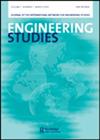连接工程过程和负责任的创新:对宏观伦理挑战的回应
IF 1.3
3区 工程技术
Q2 EDUCATION, SCIENTIFIC DISCIPLINES
引用次数: 10
摘要
摘要如果人们理解工程师正在“将梦想变为现实”,那么教育工作者就有责任支持工程师培养考虑其决策未来影响的能力。然而,即使是最有能力的工程师的决定也可能导致宏观道德失误,这些失误源于狭隘的问题框架、不均衡的风险和利益分配,或设计不适合其预期社会和文化背景的解决方案。本文描述了在工程设计过程的不同阶段如何出现宏观道德失误,并考虑了与负责任创新相关的能力如何缓解这些弱点。为了在未来的专业工程师中培养这些能力,从三个层面介绍了教学方法的例子:活动、课程和课程。对于对工程伦理感兴趣的学者和教育工作者来说,本文挑战了有利于个人主义责任理解的方法,而不是寻求支持学习者意识到并有能力改善宏观伦理失败。对于有兴趣将负责任的创新作为与工程实践相一致的学习成果来操作的学者和教育工作者,我们提供了一个对话的切入点。本文章由计算机程序翻译,如有差异,请以英文原文为准。
Connecting Engineering Processes and Responsible Innovation: A Response to Macro-Ethical Challenges
ABSTRACT If it is understood that engineers are ‘turning dreams to reality,’ then educators share the responsibility for supporting engineers in developing the capacities to consider the future impacts of their decisions. Yet even the most competent engineer's decisions can contribute to macro-ethical failures that arise from narrow problem framing, unevenly distributed risks and benefits, or design solutions unfit for their intended social and cultural contexts. This paper describes how macro-ethical failures can arise at different points in engineering design processes, and considers how competences associated with responsible innovation might assuage those vulnerabilities. To build those competences among future professional engineers, examples of pedagogical approaches are presented at three scales: activities, courses and curricula. For scholars and educators interested in engineering ethics, this article challenges approaches that favor individualistic understandings of responsibility, instead seeking to support learners’ awareness of, and ability to, ameliorate macro-ethical failures. For scholars and educators interested in operationalizing responsible innovation as a learning outcome that aligns with engineering practice, we offer an entry point for that conversation.
求助全文
通过发布文献求助,成功后即可免费获取论文全文。
去求助
来源期刊

Engineering Studies
ENGINEERING, MULTIDISCIPLINARY-HISTORY & PHILOSOPHY OF SCIENCE
CiteScore
3.60
自引率
17.60%
发文量
12
审稿时长
>12 weeks
期刊介绍:
Engineering Studies is an interdisciplinary, international journal devoted to the scholarly study of engineers and engineering. Its mission is threefold:
1. to advance critical analysis in historical, social, cultural, political, philosophical, rhetorical, and organizational studies of engineers and engineering;
2. to help build and serve diverse communities of researchers interested in engineering studies;
3. to link scholarly work in engineering studies with broader discussions and debates about engineering education, research, practice, policy, and representation.
The editors of Engineering Studies are interested in papers that consider the following questions:
• How does this paper enhance critical understanding of engineers or engineering?
• What are the relationships among the technical and nontechnical dimensions of engineering practices, and how do these relationships change over time and from place to place?
 求助内容:
求助内容: 应助结果提醒方式:
应助结果提醒方式:


